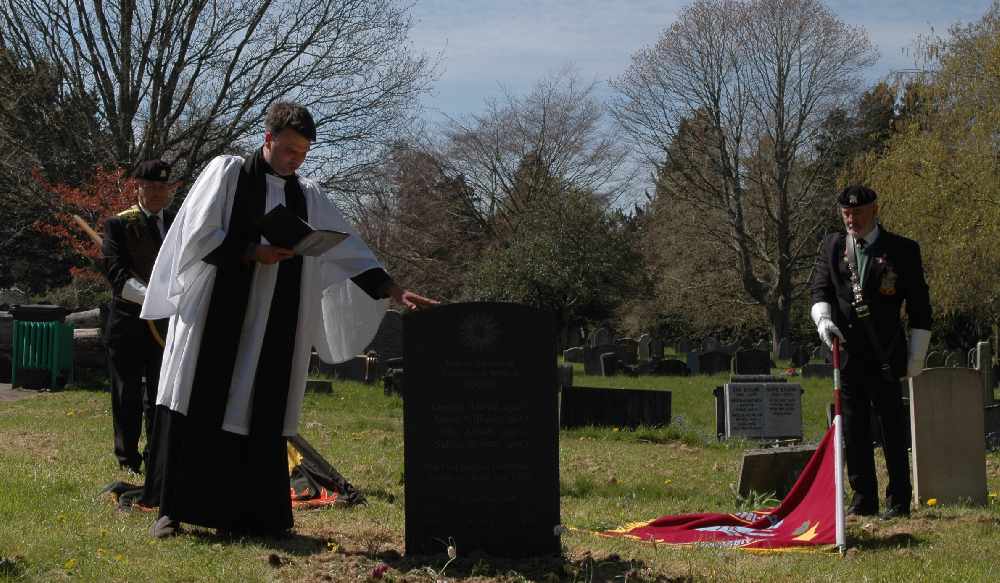
After 80 years in unmarked grave
Four brothers who died in an air ride in Exeter in 1940 have finally been remembered 80 years after they were killed.
George Squire, 17, John Squire, 12, James Squire, 8, and Sidney Squire, 3, were at home in Blackboy Road when the Nazi ordnance hit on 17 September 1940. Their mother, Florence, suffered minor injuries, and was too distressed to attend her sons' funeral three days later. Their father William escaped the tragedy only because he was at work at the time.
Now, following a fundraising campaign, the children have finally been remembered with a headstone blessed by the Exeter Diocese at their grave at Higher Cemetery, Heavitree.
Their story was uncovered by Exeter film maker Giles Healy, who was able to locate the boys' unmarked graves.
He said: "Sidney, James, George and John Squire were the first victims of air raids during World War Two in Exeter. That in itself is reason enough to mark the graves.
"The fact that the four boys were children and brothers also, adds a poignancy and potency to their deaths and marks out the bombing as a prime example of the random horror and futility of war.
"One thing I’m keen to emphasise is that the boys' parents are vital to this monument and the headstone is for all six of them.
"Florence’s experience in the aftermath of the bombing - being pulled from the debris of her house on Blackboy Road to be confronted by such colossal loss - poleaxed me and led me to look for the boys' graves in the first place.
"William, the boys’ father, was at work when the bomb fell. He was a veteran, not only of Gallipoli, but also the Western Front and had served throughout World War One.
"His children were born in peace time, between the wars, and I imagine that the four births must have been a huge comfort to him, after having lost so many of his brothers in arms, and witnessed the unspeakable horror of the grisly theatres of war he served in.
"The sudden deaths of his boys, therefore, must have taken a terrible toll. So, in the end, I wanted this for Florence and William, as much as the boys."
Giles started a campaign to raise money for a headstone, which he says had an "overwhelming response".
"The city council waived all fees, and a local stonemason and supplier offered their services at cost. I also received donations from 61 people.
"I thank each and every one of them from the bottom of my heart."
The Squire family were worshippers in the Church of England, Florence and William married at St Mary and St Peter's in Salcombe Regis and William's father was assistant churchwarden at St Mary Magdalene church in South Molton.
When Giles contacted existing family members, they said it was important for them to have a religious blessing for the new shared headstone.
The ceremony, attended by members of the family, representatives of the Royal British Legion and Exeter MP Ben Bradshaw, was carried out by the parish priest, the Rev'd Ed Hodges, Vicar of nearby St Matt's Church in Exeter.
Ed said afterwards, “It was such a privilege to take part in the memorial service for the Squire Boys.
"By remembering their short lives and finally marking the place where they were laid to rest, it felt as though justice for their family had now been realised. Their gravestone marks an important reminder of their lives and the history of Exeter in World War Two."
Giles said, "It seemed only right and proper that the family’s beliefs be respected and that the Church play a part in the final act of laying the brothers to rest."
The simple headstone reads: "Here lie the sons of Florence and William Squire.... the first civilian casualties of enemy air raids over Exeter. 17 September 1940. Love, Peace, Light."
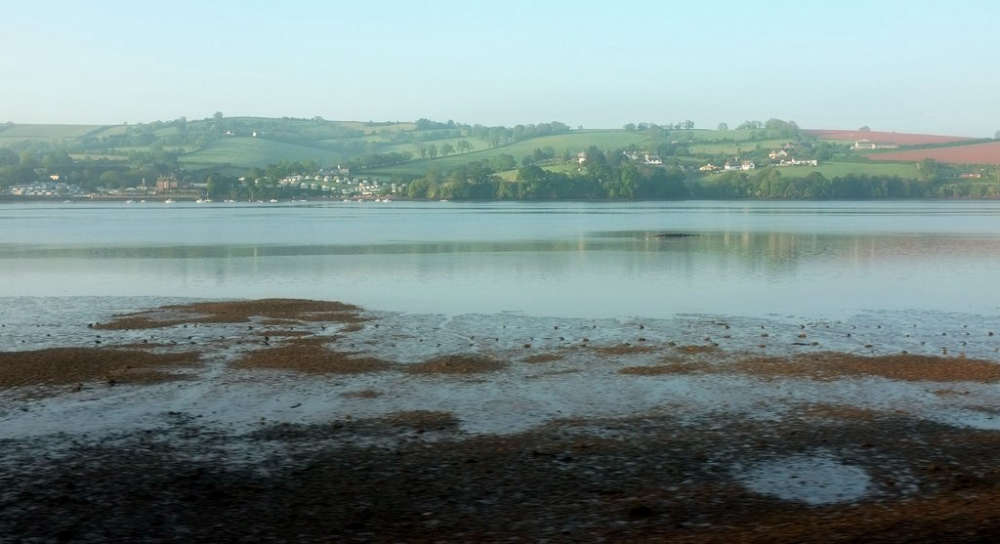 New bacteria ‘threat’ detected in River Teign
New bacteria ‘threat’ detected in River Teign
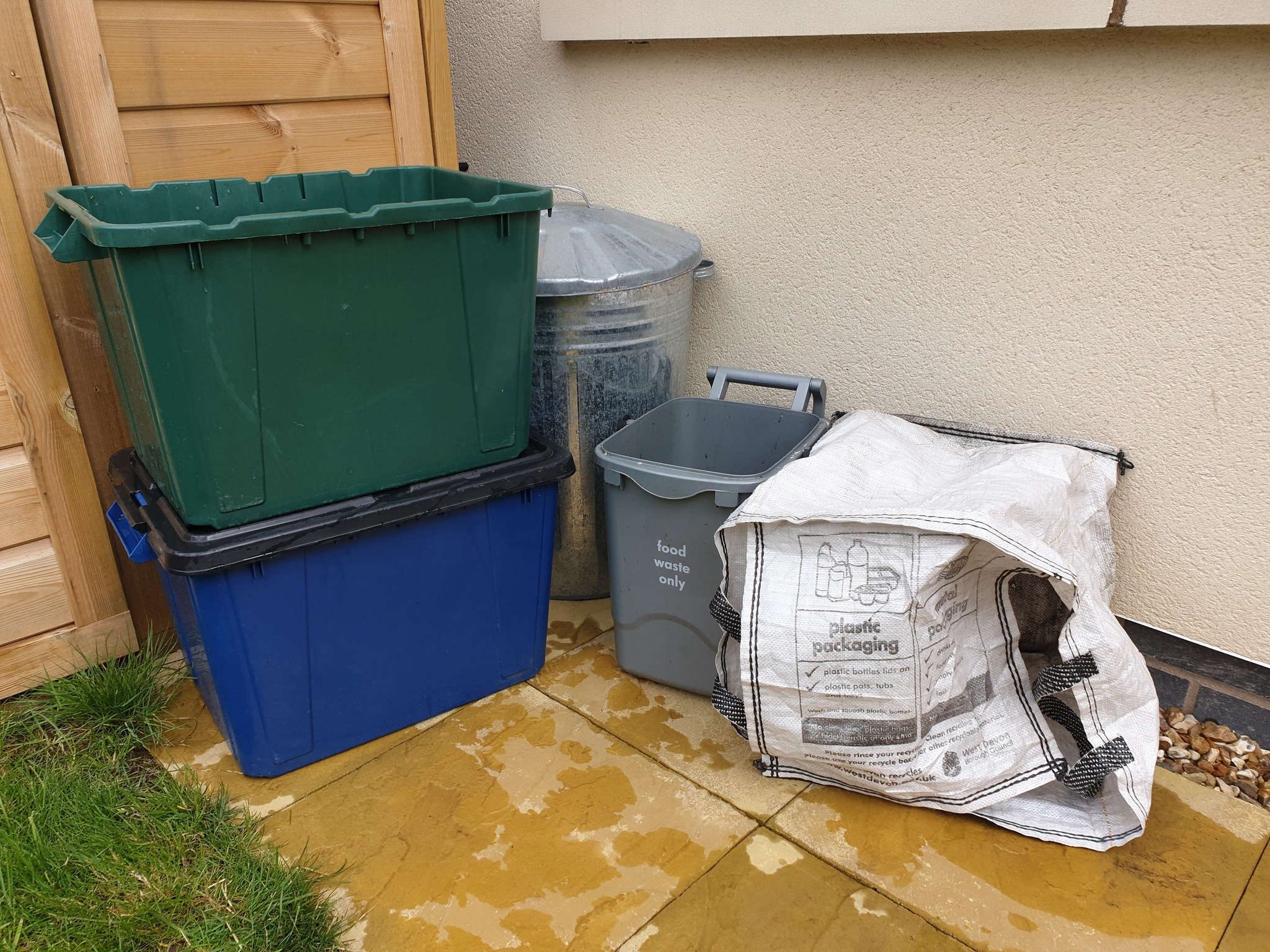 What a waste! 5,000 recycling boxes replaced
What a waste! 5,000 recycling boxes replaced
 New app makes crime reporting easy
New app makes crime reporting easy
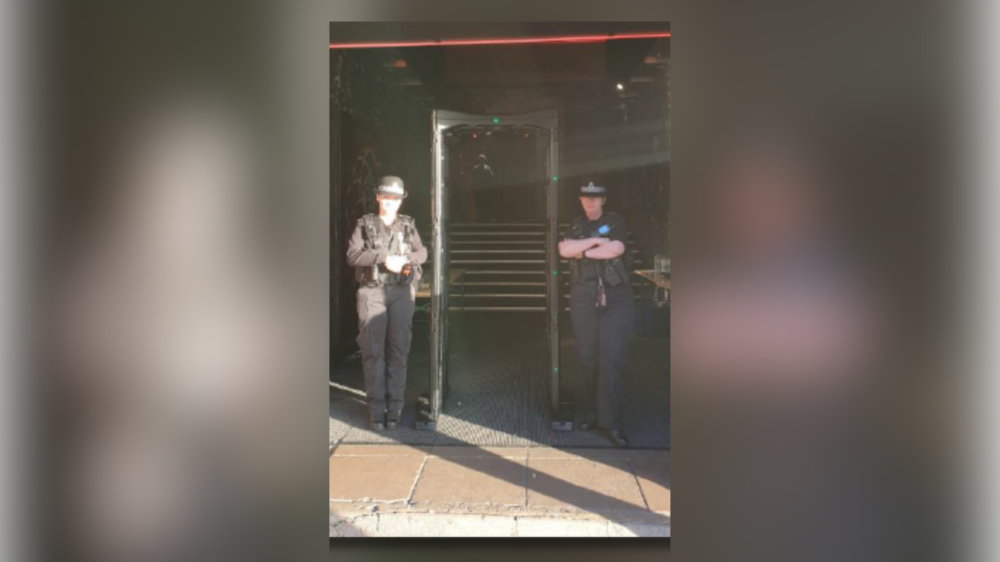 Knife scanner deployed at under-18s event
Knife scanner deployed at under-18s event
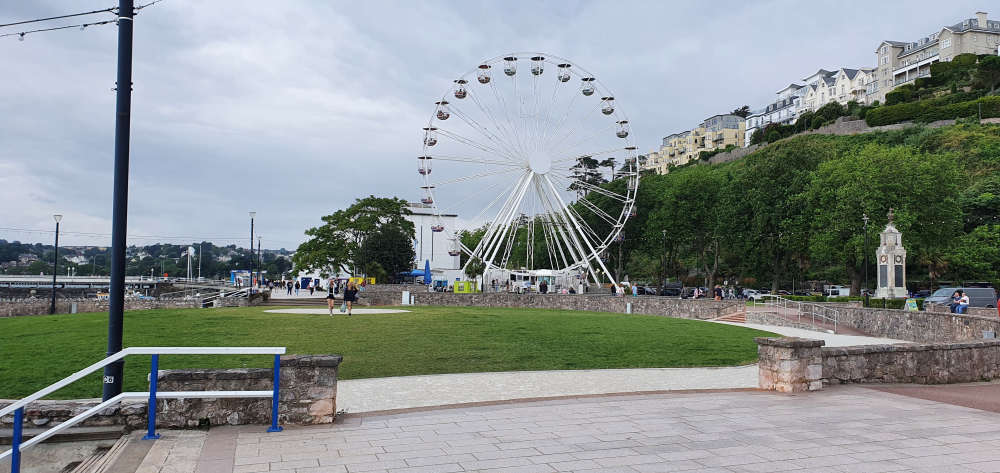 No to Torquay seafront big wheel this summer?
No to Torquay seafront big wheel this summer?
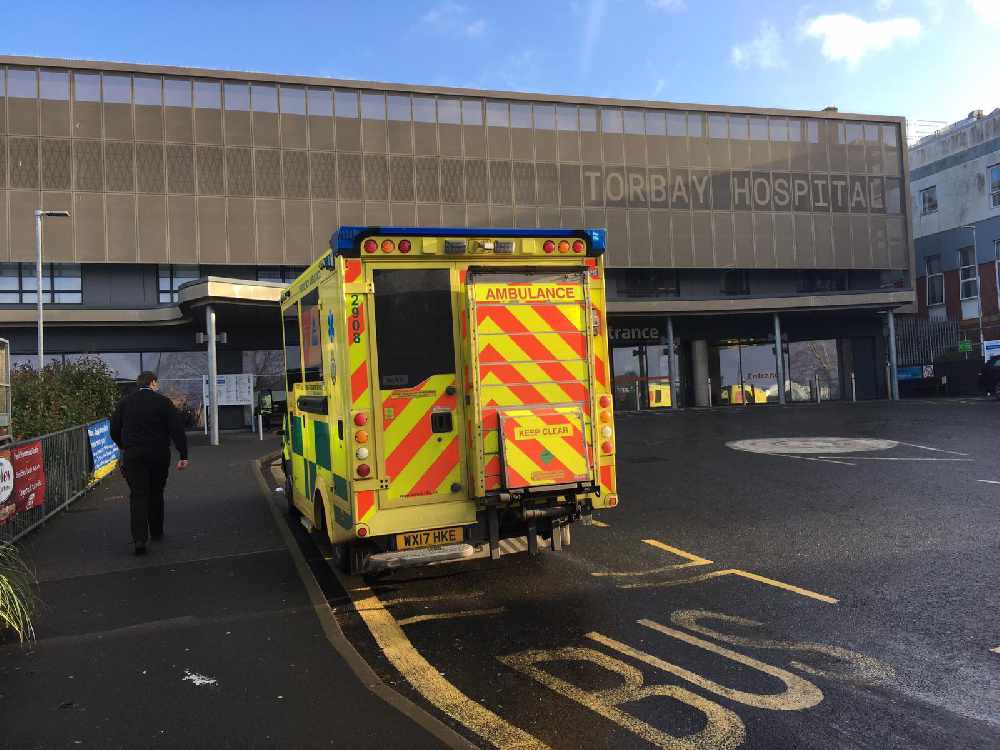 Torbay hospital ‘sewage leaks’ spark call for help
Torbay hospital ‘sewage leaks’ spark call for help
